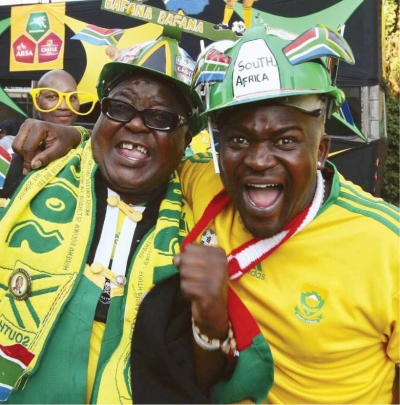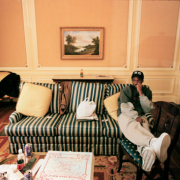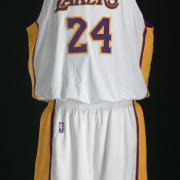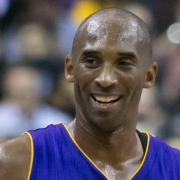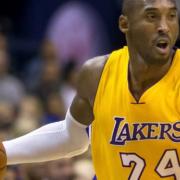New dawn at FIFA
New dawn at FIFA
Emergence of a new leader at the summit of world football raises posers on Africa’s fortunes, reports Oladipo Okubanjo
TWO MONTHS after emerging as new president of FIFA, world football’s governing body, Gianni Infantino is fast settling down to business. But, given the corruption crisis that engulfed the organisation last year, the Switzerland-born Italian certainly has his work cut out.
The 46-year-old former general secretary of UEFA, the union of European football associations now has the responsibility of repositioning the organisation so that it will once again command the respect of stakeholders.
Conscious of the fact that under the leadership of the now disgraced Sepp Blatter, FIFA was transformed from a near beggarly enterprise to a money-making behemoth that became synonymous with bribery and corruption, FIFPro, the International Federation of Professional Footballers, representing 65,000 players, has recently set out what they believe are vital steps if Infantino is to succeed as president.
Money matters
FIFPro says FIFA must prove it has the capacity to drive the reform of a democratic and politically complex global body, and treat the game above all as a sport.
According to article 69, paragraph 2 of the FIFA statutes, its revenue and expenditure “shall be managed so that they balance out over the financial period”.
Approximately 90 per cent of FIFA’s revenue is generated through the sale of television, marketing, hospitality and licensing rights for the FIFA World Cup. The revenue from the commercialisation of these rights and sufficient equity is of crucial importance to it because, in addition to funding its range of development programmes and covering general running costs, it must also finance the organisation of various international tournaments, including, most notably, the fifa World Cup.
Almost 70 per cent of expenditure flows back into football development in the form of financial support, development programmes and funding competitions.
And amid revelations in the corruption scandal, which suggest part of the profit made by FIFA might have been misappropriated, FIFPro says: “A clean break from the past is essential for FIFAto climb out of the toxic pit, which continues to produce serious accusations of corrupt behaviour on almost a daily basis. At the same time, there is no doubt the present mayhem has left FIFA morally bankrupt.”
The politics
In the build-up to the February 26 FIFA presidential election in Zurich, Infantino was seen as the standard bearer for European interests following the withdrawal of Michel Platini, the UEFA president, who was slapped with a six-year ban from football for collecting CHF2m from Blatter and FIFA without a written contract.
But Infantino had a big hurdle to surmount in Sheikh Salman bin Ebrahim al-Khalifa, the Asian football confederation president tipped by pundits as the frontrun- ner, with the Confederation of African Football, CAF, and the Asian confederation - two of the largest confederations that make up fifa - pledging their votes for him.
Infantino, in a bid to break Sheikh Salman’s supposed stranglehold on CAF, reportedly embarked on a diplomatic shuttle to Africa, where he was said to have promised $5m in development grants to each federation, including $lm as travel expenses, “if required”, should they support him in his presidential bid.
Infantino also flew to South Africa for short-notice talks with Tokyo Sexwale, the only African among the five candidates contesting the FIFA presidency. Though Infantino denied he was there for a deal, saying, “I have nothing to hide”, Sexwale told reporters: “I’m open to deals ... it’s a secretive process.”
He added: “It’s like the Vatican. You never know what will come out.”
This apparently accounted for why Sexwale dramatically withdrew his candidacy on the day of the election. The first balloting did not produce a clear winner, with Infantino finishing ahead of Sheikh Salman 115 to 88 in the second vote.
Future for Africa
However, despite the late backing that Africa gave to Infantino, there are reports that the victory of the trained lawyer sent many football chiefs on the continent into a panic mode. There remain palpable fears that Africa may cease to enjoy the kind of patronage it enjoyed from FIFA under Blatter’s leadership.
Blatter is credited with helping to reduce the ‘Eurocentric’ nature of FIFA. First of all, the number of African teams at the World Cup increased from two to five after his election as FIFA president in 1998. As a result of this, minnows like Senegal, Togo and Angola have been able to feature in the tournament over the years.
Another benefit the African continent and developing countries as a whole gained during Blatter’s time was the FIFA goal project, a programme aimed at supporting the growth of member associations by providing them with the resources to jumpstart their development by implementing key football projects.
Since its inception, numerous football associations have been provided with state- of-the-art headquarters. There has also been development of artificial pitches, not forgetting the various seminars and football clinics which FIFA organised under Blatter to educate people about the game.
This has helped many countries with limited resources from their central government for football to, at least, catch up with the more developed countries.
In addition, since the inception of the FIFA World Cup, the hosting rights were seen as the exclusive preserve of Europe and the Americas, but Blatter helped to change all that and in 2010 Africa got to host its first FIFA World Cup, and the tournament took place very successfully in South Africa.
This essentially left the various football associations in Africa in Blatter’s debt, and they appeared to show some appreciation in 2002 when many of them gave their votes to him in that year’s FIFA elections, which was also contested by Issa Hayatou, the CAF president.
Speaking on the future of Africa under Infantino’s presidency, John Fashanu, a former England international who is now a football ambassador for Nigeria, said in an interview with NewsAfrica that although the continent enjoyed a great deal of patronage from FIFA under Blatter, there is no reason why this should change under Infantino.
“Africa had it so good obviously,” said Fashanu. ‘He [Blatter] was looking after Africa. But it’s a new dawn and we don’t know which way Infantino will go; though I know he’s not the type that gives out bribes, you’d have to earn it the right way.
“However, for the fact that Africa has been exposed as a powerful continent, nobody can decrease the level Africa has attained. He [Infantino] would have to continue with Blatter’s legacy and bring out many new initiatives.’
To Paul Bassey, a veteran Nigerian journalist who serves on different committees of CAF and FIFA, “any FIFA president that does not favour Africa is digging his own grave”.
Infantino, he said, recognises the place of Africa as an emerging power in world football. “The patronage is likely to continue.
Infantino knows he can’t ignore Africa; he’s not a novice in world football, he knows the politics because he’s been around for quite some time up until he became the UEFA general secretary. ’
Simataa Simataa, a former Zambia FA chief, told the BBC, “A lot of things have been done using FIFA money and in Africa the perception is that it’s Sepp Blatter’s money. But this should be done anyway, whether Mr Blatter is there or not.” Infantino’s election, according to Danny Jordaan, head of the South Africa FA, has made FIFA a better organisation. “The reporting lines are clear, the governance of FIFA is strengthened, and transparency has been strengthened,” he said.
“So on the plus side, he comes into a new environment for organising, managing and controlling world football but he’s a person that has, I think, significant experience to steer FIFA into calmer waters.’
Infantino’s election followed the approval of a series of reforms aimed at improving FIFA’s governance and preventing another all-powerful ruler as president.
Unlike his long serving predecessor, Infantino will be limited to three, four-year terms and the office will be more ambassadorial.
In addition, a compliance officer will work closely with FIFA’s chief executive and each confederation will have a female representative on FIFA’s ruling council.

